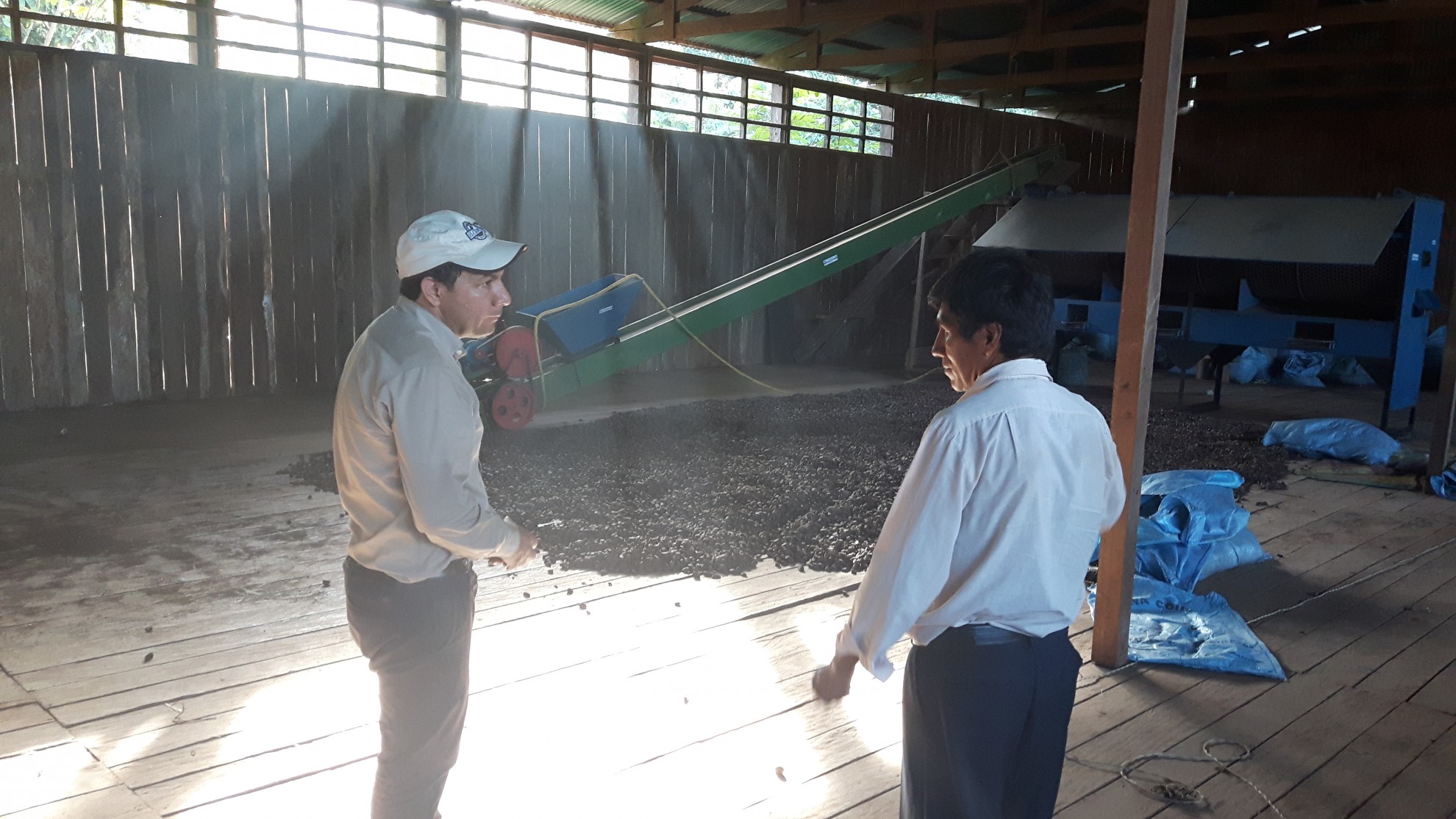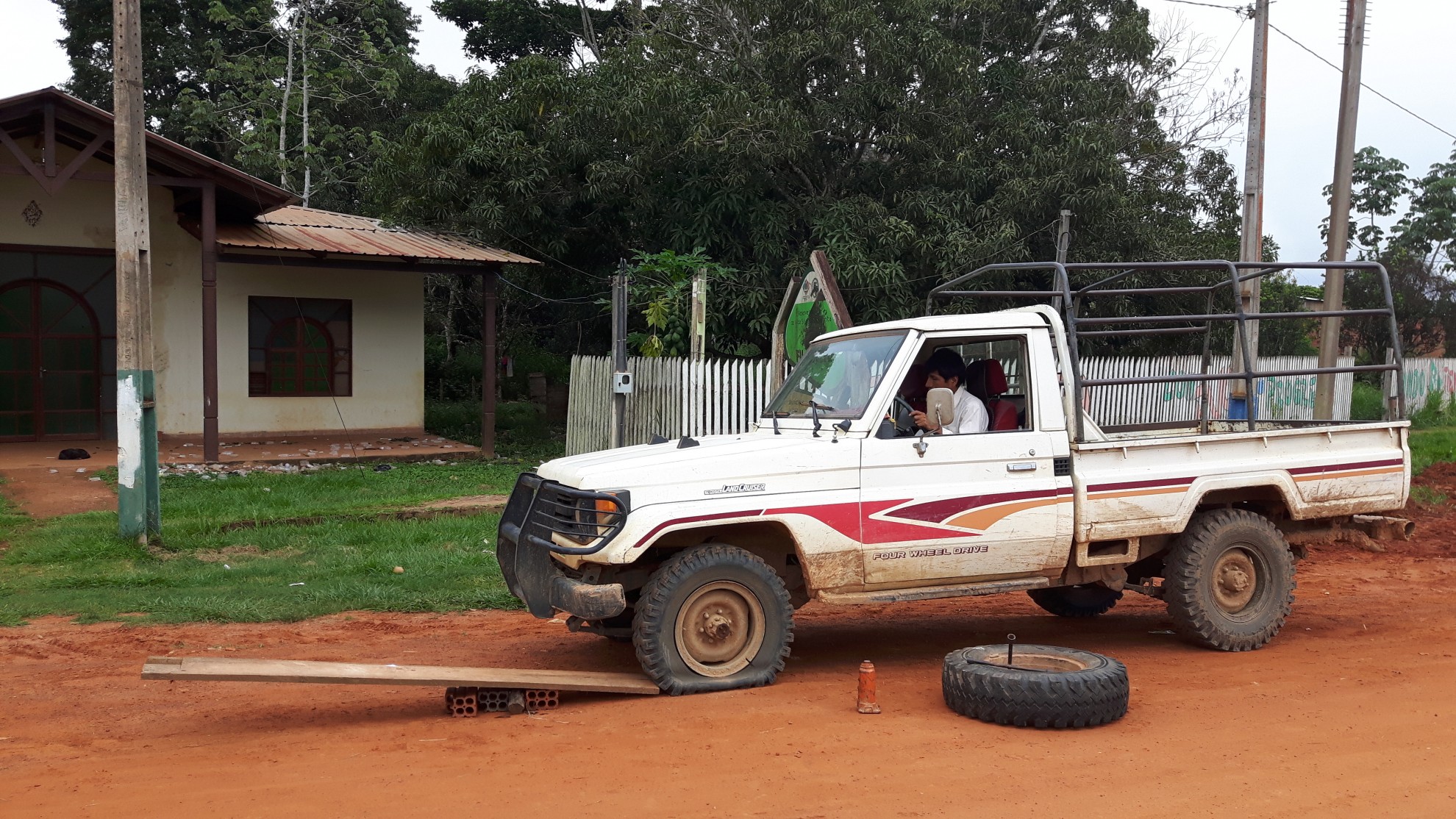From collector to producer - a great challenge
02-03-2018The collection of Brazil nuts in the Bolivian Amazon slows down the deforestation process caused by extensive cattle ranching, but in the last campaign the harvest fell by 70 percent, threatening the way of life of thousands of families. For this reason, collectors look for new sources of income in agriculture.
Rubber war
A few days ago, I saw the movie Z. The Lost City and I remembered a scoping mission we did a year ago. The film narrates the journey of the British Percival Fawcett to the end of the known world to map the jungle of the Bolivian Amazon to establish the border between Bolivia and Brazil and put an end to the territorial dispute of the Acre War. This war went beyond a border dispute when in 1887 the Scot John Dunlop invented the tire, unleashing a conflict over the control of the Amazon forest covered with rubber trees. That's why the Acre War is popularly known as the Rubber War.
One hundred years later, things do not seem to have changed much. The jungle is still a green mantle, territory of a few brave settlers, inaccessible in the rainy season, where the first signs of globalisation appear in the form of antennas and motorcycles. But, one thing has changed. After the appearance of synthetic rubber in the mid-twentieth century, natural rubber lost all its value, unable to compete on prices with synthetic rubber. Nobody extracts natural rubber from trees anymore.
Brazil nuts
Fortunately, a nut has taken over as the economic engine of the Bolivian Amazon. We talk about the Brazil nut, although paradoxically 80 percent is obtained in Bolivia. This nut is the fruit of a tree that lives a thousand years and measures 50 meters, which leaves no other option but to collect the fruit when it matures and falls. Here comes into play the expertise of 5,000 harvesting families who, during the rainy season between December and March, go deep into the jungle for months to collect by hand, one by one, the fallen fruits. However, the Brazil nut business does not end here, creating a local industry that employs 15,000 women who select, clean, peel and pack the nut, generating 75 percent of the GDP of the northern Amazon region of Bolivia.
For reasons still unknown, last year the Brazil nut harvest fell by 70 percent (call 911). Some say it is the climate change, others that it is caused by chaqueo (cutting and burning forest to gain space for livestock) and a few optimists that it is a natural cycle of forest regeneration. Be that as it may, the local economy suffered a severe blow and collectors are worried about how to diversify their economic activity.

My colleague Juan Arévalo with President Eulogio Suxo in the, almost empty, Brazil nut warehouse of the cooperative agro-extractive COINACAPA in Porvenir, Department of Pando, Bolivia
Alternative crops
In the heat of bad news, cooperation is developing alternative crops such as cocoa and coffee under agroforestry production systems that maintain the ecological balance of the forest while generating new sources of income for the local population.
However, the transition from collector to producer is a great challenge.
What will happen when the collectors realise that coffee plants generate a negative cash flow in the first years?
How will they bring production to markets in the rainy season when roads are not accessible?
Will they be able to switch from a seasonal job as a collector to a daily job as a farmer? Or will they be frustrated and abandon the attempt?

Our truck after a few hours of travel on the dirt roads of the Bolivian Amazon, and it was not the only mechanical problem of the day, Department of Pando, Bolivia
Cooperatives as key to success
During the scoping mission with a collector’s organisation we were asked to support a project of economic diversification towards agroforestry production systems of cocoa and coffee. However, the difficult transition from collector to farmer was on top of the organisation’s weak economic and institutional performance, posing considerable risks to the project implementation. Agriterra firmly believes that cooperative work is the key to success, but it cannot be achieved without strong organisations. That is why Agriterra focuses its efforts on boosting sustainable organisations, but with great growth potential. Consolidating cooperative work as one of the agrarian and rural economic development pillars.
Now, what I must do is inviting all of you to consume Brazil nuts for their taste and nutritional properties. The Brazil nut supports the economy of the region and helps preserve the Amazon rainforest as it is an alternative activity to extensive livestock farming, the main cause of deforestation in the Amazon rainforest.
Consume Brazil nuts! Your health and that of the planet will thank you!
Guido Guerra, business advisor Bolivia
